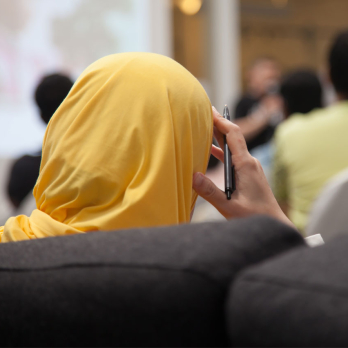Emile Bustani Middle East Seminar


Emile Bustani was born into a poor Lebanese family in 1907 during the twilight years of the Ottoman Empire. He combined the technological skills he learned as a civil engineer student at MIT (SB 1933) and his financial success with the ideals of nineteenth-century philanthropists. He was considered among the most influential individuals of the Middle East. In 1985, Myrna Bustani funded the seminar series in memory of her late father, Emile Bustani, who died tragically in his mid-fifties. The Emile Bustani Middle East Seminar was named in his honor.
After 40 years of activity, the Emile Bustani Middle East Seminar has shut its doors . The last gathering took place on April 8, 2025.
The Bustani Seminar brought some 200 experts to the MIT campus to enlighten Boston area students, faculty, journalists and others about the politics, economies, societies, and cultures of the Middle East region. Because the Bustani family hails from Lebanon, the Bustani Seminar was launched and concluded with presentations on Lebanon.
The Bustani Seminar was chaired by Philip S. Khoury, Ford International Professor of History and the former Vice Provost at MIT, who expresses his deepest gratitude to the Bustani family.